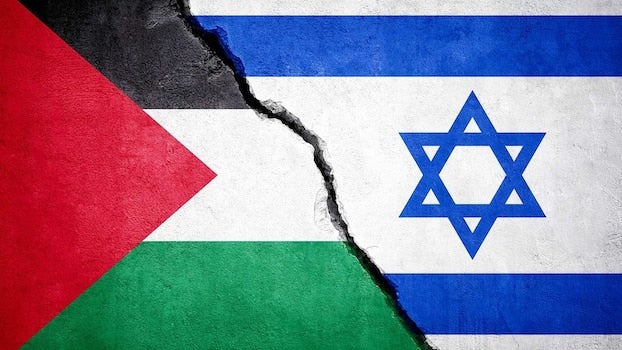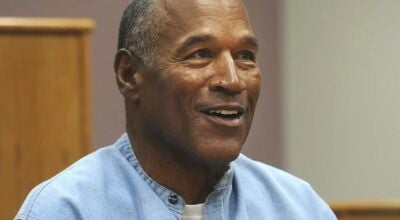On Day One of Gaza cease-fire, Hamas and Israel carry out first swap of hostages and prisoners
Published 5:43 pm Friday, November 24, 2023

- (Special to the American Press)
Hamas on Friday released 24 hostages it held captive in Gaza for weeks, and Israel freed 39 Palestinians from prison in the first stage of a swap under a four-day cease-fire that offered a small glimmer of relief to both sides.
Israel — wrenched by the abduction of nearly 240 people in Hamas’ Oct. 7 attack that triggered the war — cheered as 13 Israeli women and children emerged free from Gaza. Most were in their 70s or 80s, and the youngest was a 2-year-old. Also released were 10 people from Thailand and one from the Philippines.
In Gaza, the truce’s start Friday morning brought the first quiet for 2.3 million Palestinians reeling and desperate from relentless Israeli bombardment that has killed thousands, driven three-quarters of the population from their homes and leveled residential areas. Rocket fire from Gaza militants into Israel went silent as well.
Increased supplies of food, water, medicine and fuel promised under the deal began to roll into Gaza, where U.N. officials had warned that Israel’s seal on the territory threatened to push it to starvation.
But relief has been tempered — among Israelis by the fact that not all hostages will be freed and among Palestinians by the briefness of the pause. The short truce leaves Gaza mired in humanitarian crisis and under the threat that fighting could soon resume.
Israel says the cease-fire could be extended if more hostages are released, and Prime Minister Benjamin Netanyahu’s office said it had received a new list of hostages to be released by Hamas on Saturday.
But Israel has vowed to resume its massive offensive once the truce ends. That has clouded hopes that the deal could eventually help wind down the conflict, which has fueled a surge of violence in the occupied West Bank and stirred fears of a wider conflagration across the Middle East.
FIRST HOSTAGES FREED
Under the deal, Hamas is to release at least 50 hostages, and Israel 150 Palestinian prisoners over the four days. Both sides were starting with women and children. Israel said the four-day truce can be extended an extra day for every additional 10 hostages freed.
After nightfall Friday, a line of ambulances emerged from Gaza through the Rafah Crossing into Egypt carrying the freed hostages, as seen live on Egypt’s state-run Al-Qahera TV. The freed Israelis included nine women and four children 9 and under.
The released hostages were taken to three Israeli hospitals for observation. The Schneider Children’s Medical Center said it was treating eight Israelis — four children and four women — and that all appeared to be in good physical condition. The center said they were also receiving psychological treatment, adding that “these are sensitive moments” for the families.
At a plaza dubbed “Hostages Square” in Tel Aviv, a crowd of Israelis celebrated at the news.
Yael Adar spotted her mother, 85-year-old Yaffa Adar, in a TV newscast of the release and was cheered to see her walking. “That was a huge concern, what would happen to her health during these almost two months,” she told Israel’s Channel 12.
But Yael’s 38-year-old son, Tamir Adar, remained in captivity. Both were kidnapped on Oct. 7 from Kibbutz Nir Oz. “Everyone needs to come back. It’s happiness locked up in grief.”
The hostages included multiple generations. Nine-year-old Ohad Munder-Zichri was freed along with his mother, Keren Munder, and grandmother Ruti Munder. The fourth-grader was abducted during a holiday visit to his grandparents at the kibbutz where about 80 people — nearly a quarter of all residents of the small community — are believed to have been taken hostage.
The plight of the hostages has raised anger among some families that the government of Prime Minister Benjamin Netanyahu was not doing enough to bring them home.
Hours later, 24 Palestinian women and 15 teenagers held in Israeli prisons in the occupied West Bank and east Jerusalem were freed. In the West Bank town of Beituna, hundreds of Palestinians poured out of their homes to celebrate, honking horns and setting off fireworks that lite up the nights sky.
The teenagers had been jailed for minor offenses like throwing stones. The women included several convicted of trying to stab Israeli soldiers, and others who had been arrested at checkpoints in the West Bank.
“As a Palestinian, my heart is broken for my brothers in Gaza, so I can’t really celebrate,” said Abdulqader Khatib, a U.N. worker whose 17-year-old son, Iyas, was freed. “But I am a father. And deep inside, I am very happy.”
Iyas had been taken last year into “administrative detention,” without charges or trial and based on secret evidence. Israel often holds detainees for months without charges. Most of those who are tried are put before military courts that almost never acquit defendants and often don’t follow due process, human rights groups say.




